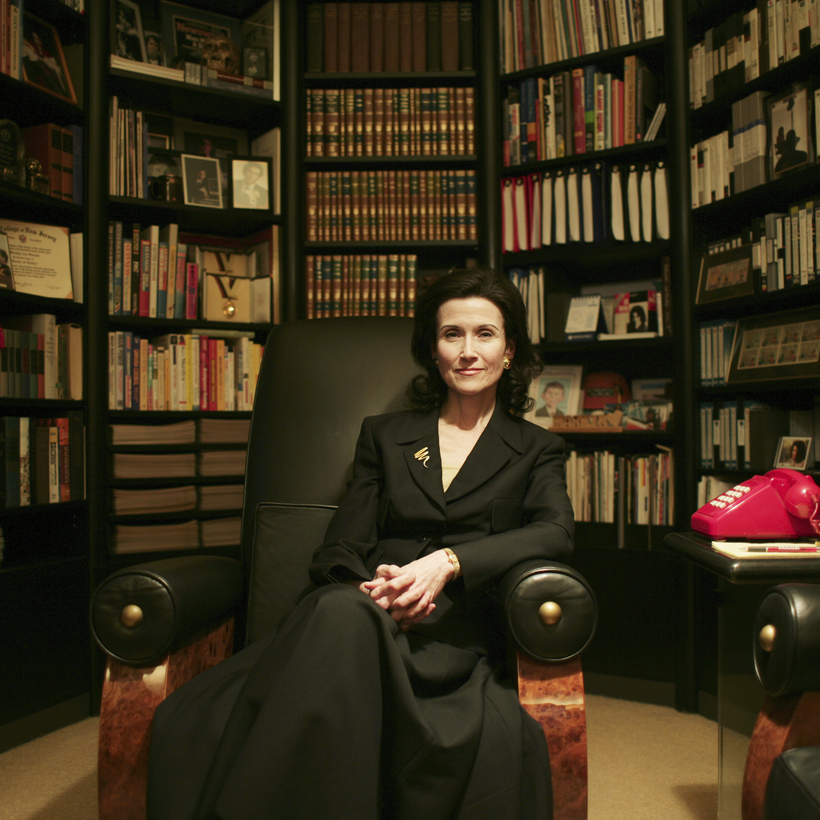For most Americans, trivia as a pastime does not extend beyond maybe participating in a weekly quiz night at their local bar, where a “tough question” might require knowledge about Cliff from Cheers. But for those who live to call to mind seemingly random bits of information faster than someone else, there exists an intensely competitive world of high-level trivia tournaments, such as the European Quizzing Championships (E.Q.C.), where participants vie for domination in subjects as varied as ancient Roman history and pop music. Every year, nearly 200 people from around 25 countries participate in the E.Q.C., with the tournament culminating in the prestigious Nations Cup, a weekend-long competition in which the top four quizzers of each country face off against one another.
At last year’s E.Q.C., held in Venice, spectators were all but certain that Belgium—a three-time Nations Cup winner and perennial runner-up—would face off in the finals against England, who had won the previous six years. The two countries have long dominated the E.Q.C., winning a combined 13 championships out of the competition’s 15-year history, and for good reason: the E.Q.C. developed from a yearly tournament between these two quiz-world superpowers. England and Belgium both have a lengthy tradition of quiz culture, with strong national circuits in which competitors can train for international contests.
In the end, however, fans witnessed an unprecedented outcome: the Norwegian national team (made up of Ole Martin Halck, Tore Heliks Van Dahl, Lars Heggland, and Thomas Kolåsaeter) unseated both powerhouses.
The E.Q.C. developed from a tournament between two quiz-world superpowers, England and Belgium.
In many European countries, prepping for quizzing competitions is taken as seriously as athletic training for the Olympics. Participants build their gray matter by attending weekly pub trivia nights, endlessly reading quiz literature, and testing themselves against exams from previous years. Some players claim that the only kind of leisure reading they do involves Shakespeare’s plays and literary classics, anything that might give them a leg up in quizzing. Others have reported competing in two or three quiz events each weekend in the months leading up to a major tournament. Still others take weeks off from their full-time jobs to prepare for the E.Q.C. and World Quizzing Championships, both part of the “Grand Slam” tournaments of international quizzing.
Norway had been a solid player in the Nations Cup through the last decade and a half, but they had never managed to come out on top. Then, in 2018, something clicked. The Nations Cup competition kicked off with a qualifier stage, a written quiz of 100 questions that teams worked together to complete and that featured topics as diverse as primate species and French politicians. When this qualification round ended, Belgium was on top and Norway was second, just one point ahead of England. The Norwegians were shocked. Never before had they placed above England in the written quiz.
Some players claim that the only leisure reading they do involves Shakespeare’s plays.
In the E.Q.C. semi-final, Norway edged England 63–60, locking them out of the championship match for the first time in six years. The final would take place in a full ballroom in front of a crowd that included most of the sport’s all-time greats. Norway routed Belgium in the final, running away with the game 88–72.
Curiously, the Norwegian team’s triumph didn’t make any headlines at home. (One has to wonder if editors thought the news was too, well, trivial.) But their success did send ripples through the quizzing community. Jane Allen, C.E.O. of the International Quizzing Association, believes this foretells good things for the sport. “The fact that Norway won opens up the possibility that anyone can take it,” said Allen. “From the sport’s P.O.V., it’s very good to have new winners because it shows everyone that the top teams can be beaten.”
The 2019 installment of the E.Q.C. will take place from November 8 to 10 in Sofia, Bulgaria. Will Norway be able to repeat their history-making performance from last year? Will England and Belgium reign again? Or will a newcomer waiting in the wings claim their first Nations Cup in Bulgaria?

Question: The high-I.Q. society Mensa International has a test designed to be passable by only the top percentile of the population. It requires a score of about 131. What percentage of the population achieves that score? Show answer…
Two percent.
Question: Which hybrid fruit was discovered (or at least re-discovered) in 1902 in the garden of an Algerian orphanage? It was named for the French missionary brother who planted the orphanage’s garden and discovered the hybrid. Show answer…
Clementine, after Marie-Clément (née Vital Rodier).
Question: What name is given to the hand-shaped amulets popular throughout the Middle East and North Africa as jewelry or as wall hangings? Show answer…
Hand of Fatima.
Question: Common, well-known name given to lesser primates in the family Hylobatidae, such as Junzi imperialis. Show answer…
Gibbon.
Question: A president of a G8 nation, who shares his surname with an Italian sportswear company (founded in 1971) that designs and has supplied kits to national teams and clubs in various sports, including football clubs such as Bangor City, Club Brugge, Deportivo La Coruña, Dinamo București, H.N.K. Hajduk Split, R.C. Lens, Miami FC, T.S.V. 1860 Munich, S.S. Lazio, and Sporting C.P.? Show answer…
Emmanuel Macron.
Lynn Q. Yu is a writer based in Los Angeles


